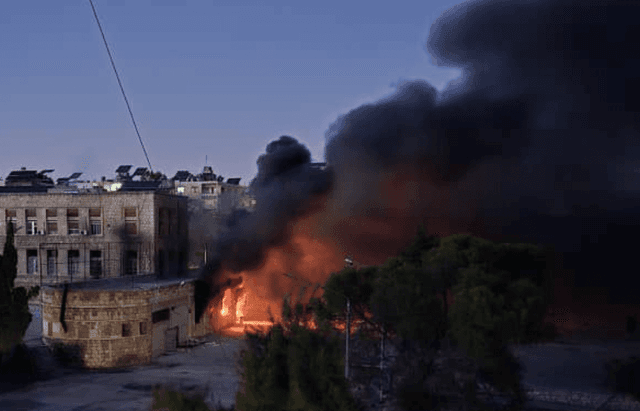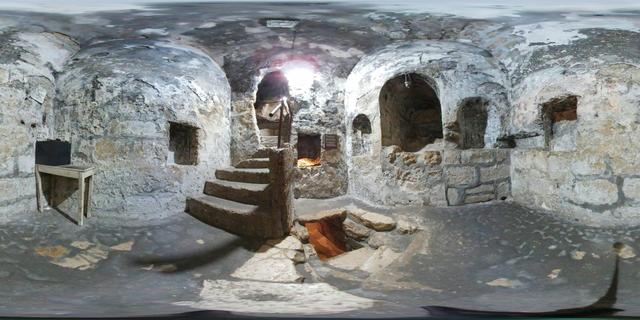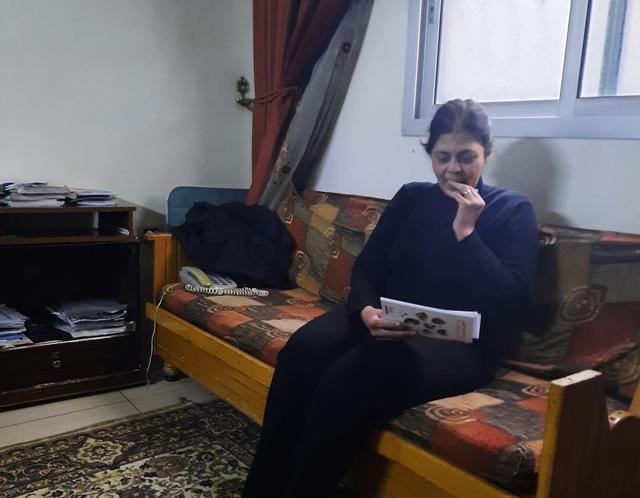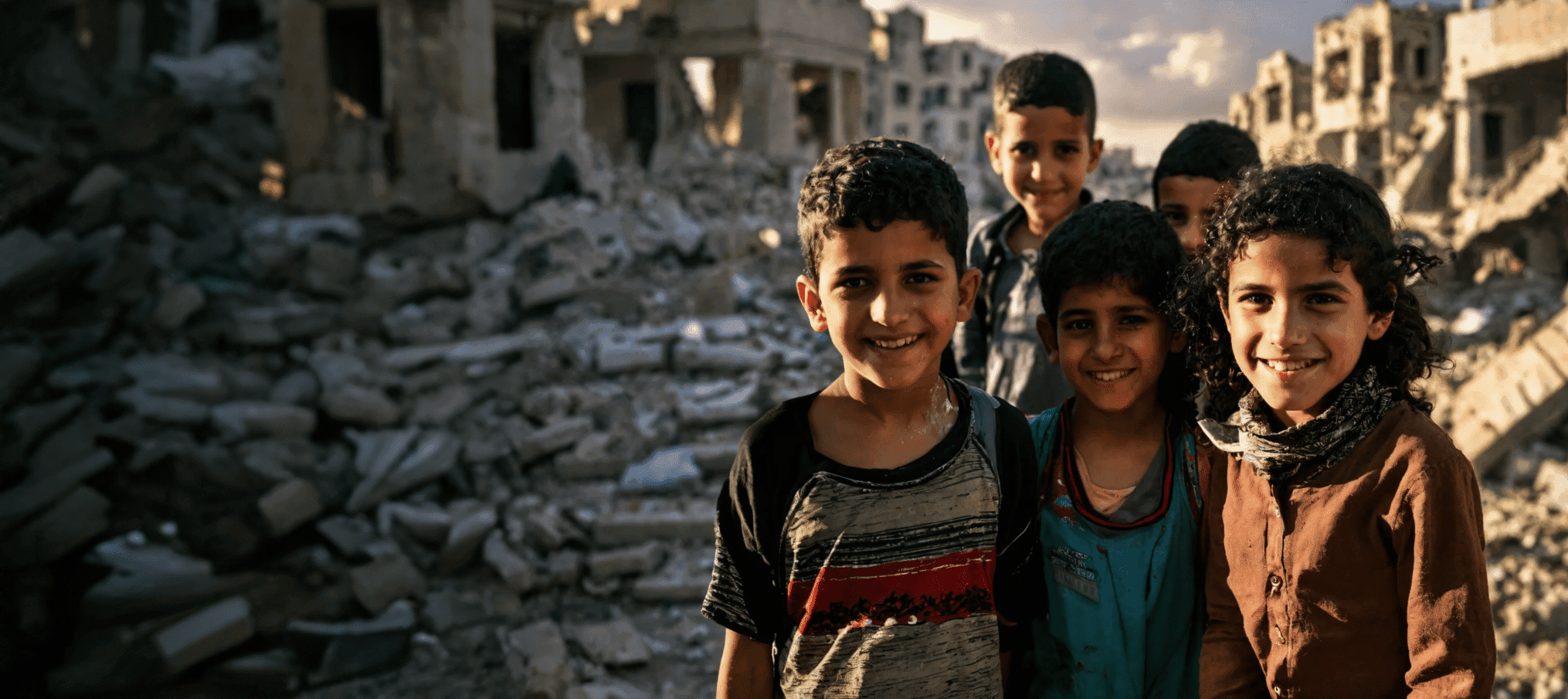Testimony from the land of Hezbollah: "In this situation it is necessary to give material support, as well as spiritual support"
On the night of August 24-25 , 2024, the Israeli army carried out a series of "preemptive" air strikes in southern Lebanon, as Prime Minister Benjamin Netanyahu called them, to prevent the launch of 6 thousand missiles by Hezbollah. Shortly after, the Lebanese organization responded with 300 rockets.
"It was the worst night ever," Father Toufic Mehri, a Franciscan of the Custody of the Holy Land and parish priest of a truly vast area in southern Lebanon, on the border with Israel, wrote to us in the morning, which includes biblical cities such as Tyre and Sidon, or Naqura (Naquora) which overlooks the sea and is known because it is home to the base of the UNIFIL (United Nations Interim Force in Lebanon) military United Nations) where about a thousand Italian soldiers of the "Leonte" operation are deployed. The other front of the war.
This is why we asked Father Toufic to update us on the situation and on the activities in support of those who have remained carried out thanks to the support of Pro Terra Sancta.
Who is Father Toufic?
I am a Lebanese Franciscan originally from Damour, a Christian town known in history for the massacre of January 20, 1976 (perpetrated by some members of the Lebanese left supported by the PLO against Lebanese Christians) during the civil war. Today, I am the pastor of the largest parish in the country; to give you a better understanding of the parish geography, the area extends along the coast from Sidon to the city of Naqura for 60 km and stretches in width for 75 km from Tyre to the small village of Deir Mimass, in the mountains overlooking the Litani River. [fiume Leonte ndr.].
The area they entrusted to me borders Israel to the south and south-west, so right along the entire hottest axis of the war between Israel and Hezbollah.
What is the situation in southern Lebanon? How do you live or survive?
At the moment, I am in Tyre, where the situation is relatively “calm,” meaning that the fighting has decreased for now, but on the night of the 24th, we were very frightened. Overall, the situation remains dangerous and severe: since October 7, there have been daily battles, missile launches, and air raids causing casualties and injuries.
This is why people are very scared, commercial activities are at a standstill and there is no more work. Those who could have fled, we are talking about 180,000 people, to Beirut or other areas of Lebanon, but many do not have the economic possibility and therefore remain... Recently, however, some are returning, for the same reason: because they have been displaced for many months and no longer have the resources to live in cities like Beirut, where prices are prohibitive.
It is an area that has always been the scene of clashes, but before civilian and religious sites were spared and now it is a war without distinction. For example, the church of our Melkite confreres in the village of Aytaroun was destroyed.
Those who are worse off, however, are above all the inhabitants of Deir Mimass, the village I told you about above.

Why is the situation in Deir Mimass particularly serious?
Deir Mimass is a farming village perched on the mountains, famous for its olive trees and oil and is located right on the border with Israel a few kilometers from Metulla and Kyriat Shmona, Israeli outposts. It is located between the two fires: on one side there are the Hezbollah positions from which the rockets are launched, on the other the Israeli line of fire. The fighting is very close, so much so that some time ago our cemetery about 500 meters from the town center was also hit.
Before the war, about 30 parishioner families lived here, now some have moved to us in Tyre, some in Beirut and now there are 16 left. Among them there are those who cannot physically leave due to physical, but above all economic limits and therefore stay, but there are also those who have decided to stay because this is their home, there are their olive trees, their life and to maintain our presence here.
I was very struck by a lady from the village who always calls me when the candles are about to run out in the church because every day since October 7 she has lit a candle to the Virgin and always tells me: "Father, I am not leaving because this candle cannot be extinguished, it must remain lit because Our Lady will bring peace as in 2006". The reference is to the truce in the conflict between Israel and Hezbollah that lasted 34 days, peace arrived on August 14 on the eve of the Assumption. And thank God there were no casualties in our community.
What is the role of a parish priest in southern Lebanon? What are the needs and what activities do we carry out in this situation?
First of all, supporting those who have remained and continuing pastoral activities: in this situation, unfortunately, this also means providing material as well as spiritual support. The community of Deir Mimass has often been isolated because the road leading from Tyre to the village is controlled by drones that launch rockets. In some sections you have to accelerate because stationary or slow vehicles are targeted. I once happened to pass by a burning car hit a few minutes before our passage, so much so that the bodies of the passengers were still on the road.
This means that supplies of vegetables and meat are no longer arriving in the country. I have never stopped going (when safe of course), to celebrate mass and follow the community, but when I learned of this supply problem I improvised myself as a greengrocer! At least twice a month I visit the village and bring with me crates of vegetables, fruit and meat. Then I distribute them to those who need them. All this is possible thanks to the support of Pro Terra Sancta.
As well as the economic support we give to families in Tyre because, as I said before, commercial activities are at a standstill and the situation was already complicated before the war due to a deep crisis in the country that has been going on since 2019. The support is mainly used to guarantee housing for displaced people.
In addition, we carry out regular distributions of food parcels in Tyre. This was an activity already underway due to the crisis that has now increased because there is more and more poverty. The need is enormous, we really hope that a solution can be reached soon because it is a war that is not ours and we do not deserve it.



























